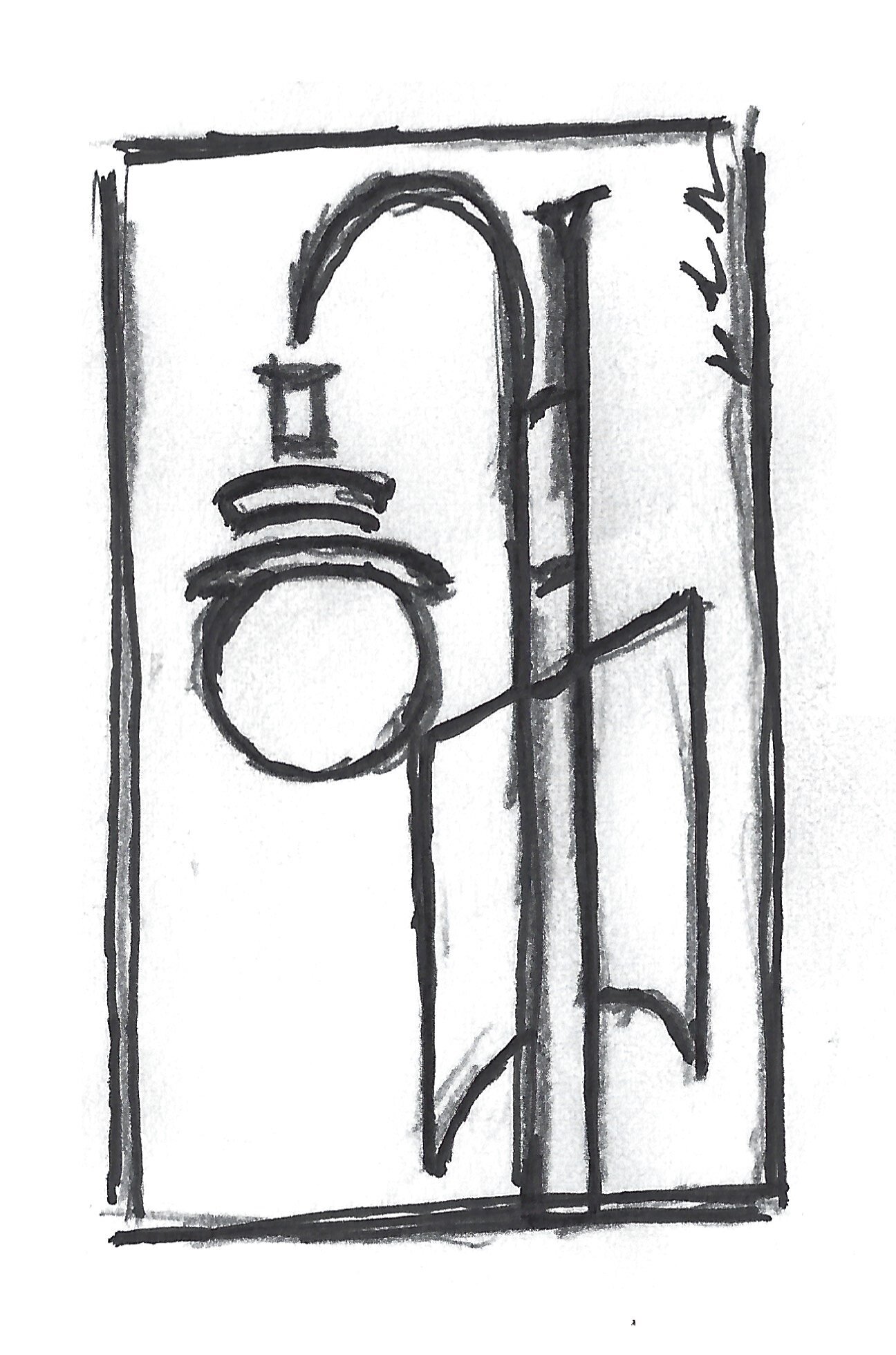Bienvenue!
Welcome, and thank you for checking out Pain Neuf!
Allow me to tell you how this all began. My long journey of bread baking grew from very practical roots. During 2012, my wife and I were preparing for the birth of our son. With the coming our first child there were so many changes to consider, but one area I knew I wanted to devote more attention to was eating healthier. And one way to eat healthier was to make our own bread.
Armed with my intent and a recipe from Food Network, I made my first white bread loaves. They did not look that great and the crumb was loose, but it was acceptable. I went back to the kitchen and decided to give the white bread another go. This meant slightly adjusting the baking process each time to achieve better results.
After feeling like I had a handle on white bread, I graduated to French bread, French bread and then to Italian bread. Gaining a certain confidence with simple basic loaves, I challenged myself to graduate on to Challah and Brioche, and then to pastries, and ultimately, to traditionally naturally fermented sourdough.
A desire to fill this void of fresh bread and reawaken traditions using healthier processes is what inspired me to found Pain Neuf. Pain Neuf is French for New Bread. It is also a play on the name of Paris’ now oldest bridge, Pont Neuf, though it was once the newest when it was named. The name encapsulates two things: my family’s love of the city of Paris and French cooking as well as the idea that what can seem new to us now, has been around a long while and we can appreciate it still if we are willing to work to bring it back into practice.
You’ll find an assortment of natural breads and pastries that we offer from Pain Neuf!
Pain Neuf - Les Origines
A new bakery start-up, Pain Neuf seeks to connect to the rich tradition of bread making from France and throughout the world.
The name, Pain Neuf, is unique—with unique roots … or supports (supports is a better word). On the west bank of the Île de la Cité, a particular stone bridge spans the River Seine in two parts. The first part connects the left bank to the Île via five supports; the second part connects the Île to the right bank via seven supports. This bridge is known by the Parisians as Pont Neuf, which means “new bridge”. Pont Neuf began construction in 1578 and concluded in 1607 and was given the name, Pont Neuf, designating it as the newest bridge in Paris. Ironically, over time, it now has become the oldest bridge in Paris!
This idea of the name of the bridge—Pont Neuf—was the inspiration for Pain Neuf Bakery.Pain Neuf, roughly translated, means “new bread”.The same irony that is tied to the bridge also applies to the bakery’s origins!The bakery offers a new way to enjoy old world-based bread—a way that uses natural fermentation and products free from any preservatives to enjoy bread as it was commonly before mechanized processes.Just like the bridge, this “new” way to enjoy bread is, ironically, the way bread has been made for thousands of years as compared to recent history.Pain Neuf seeks to offer bread like homemade bread your family might have enjoyed throughout the year and on special occasions several generations ago! New bread to us—resurrecting the traditional way!
Faire du Pain
Today bread has been greatly distorted from the product it once was. Pain Neuf seeks to redeem bread and offer it to everyone in its most nourishing form.
There are four main threats to bread in the world today—it undergoes little to no natural fermentation, flour used to make it is over-refined, insecticides and herbicides are over-applied to the grains used to make it, and conventional yeast is relied on to the detriment of bread to be eaten in its most digestible form.
Natural fermentation is the process by which yeast breaks down starches and gluten in flour and produces carbon dioxide (which causes the bread to rise)—this process takes a lot of time! The wheat kernel has nutrients, but those nutrients must be made available to us. First, the kernel must be ground into a flour; then the flour must be added to starter, water, and salt and allowed to ferment to fully unlock all those nutrients! Bread made at Pain Neuf uses natural fermentation to aid in all its sourdoughs to make as much of the nutrients as bioavailable as possible.
Over refinement of flour is the norm of the industry at large. In this process, nutrients are stripped from flour to eliminate more of the kernel that can decay resulting in increased shelf life. Additionally, to ensure high yields, it is common for corporations to over-use insecticides and herbicides to preserve their crop. Sadly, these chemicals coat wheat kernels and can remain into the milling process. It is for these reasons that Pain Neuf partners, primarily with Central Milling to source its flour. Central Milling is a USDA certified organic operation that grows, and mills flour sustainably.
Apart from depleting the quality of the ingredients, many bakeries and commercial baking operations, in the interest of shortening the rise time of various dough, will add large amounts of conventional yeast.Yeast can be as high as 5% of the total flour weight, which too much yeast can cause digestive problems.At Pain Neuf, its naturally fermented sourdoughs contain less than 0.5% conventional yeast compared to the total flour weight.
Ingrédients
Ingredients are the cornerstone of good bread—it is the difference between full and bland flavor, or healthy and harmful products. Thankfully today, real ingredients are demanded more and more from consumers, but investigating what is truly healthful can be difficult, especially when so many labels make claims that their products are “real” or “natural.”. Here at Pain Neuf, we have decided to source our major ingredients from trusted sources and be very transparent about it. Giving you some insight into how we determine and source what goes into our food, we, in turn, encourage you to investigate ingredients for yourself!
Flour: Central Milling: Central Milling has been producing flour for bakers that makes good bread and is healthy. All flour used in the operation is organic and will produce a nice crumb and crust.
Butter: Vital Farms / Vermont Creamery: Vital Farms and Vermont Creamery produces rich European style butter with a high milk fat content. This lends to a richer flavor.
As we grow, expect more ingredients to make the list!




